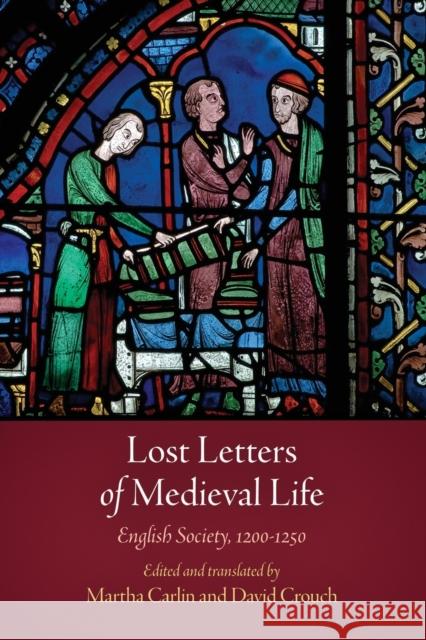Lost Letters of Medieval Life: English Society, 12-125 » książka
Lost Letters of Medieval Life: English Society, 12-125
ISBN-13: 9780812223361 / Angielski / Miękka / 2014 / 360 str.
Everyday life in early thirteenth-century England is revealed in vivid detail in this riveting collection of correspondence of people from all classes, from peasants and shopkeepers to bishops and earls. The documents presented here include letters between masters and servants, husbands and wives, neighbors and enemies, and cover a wide range of topics: politics and war, going to fairs and going to law, attending tournaments and stocking a game park, borrowing cash and doing favors for friends, investigating adultery and building a windmill.While letters by celebrated people have long been known, the correspondence of ordinary people has not survived and has generally been assumed never to have existed in the first place. Martha Carlin and David Crouch, however, have discovered numerous examples of such correspondence hiding in plain sight. The letters can be found in manuscripts called formularies--the collections of form letters and other model documents that for centuries were used to teach the arts of letter-writing and keeping accounts.The writing-masters and their students who produced these books compiled examples of all the kinds of correspondence that people of means, members of the clergy, and those who handled their affairs might expect to encounter in their business and personal lives. Tucked among the sample letters from popes to bishops and from kings to sheriffs are examples of a much more casual, ephemeral kind of correspondence. These are the low-level letters that evidently were widely exchanged, but were often discarded because they were not considered to be of lasting importance. Two manuscripts, one in the British Library and the other in the Bodleian Library, are especially rich in such documents, and it is from these collections that Carlin and Crouch have drawn the documents in this volume. They are presented here in their first printed edition, both in the original Latin and in English translation, each document splendidly contextualized in an accompanying essay.











